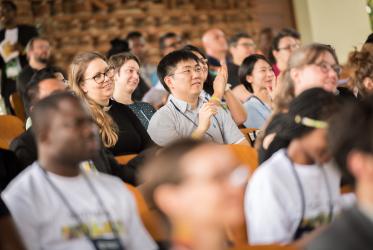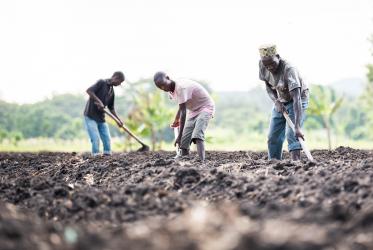Eco-School on Water, Food and Climate Justice
The nexus between water, food and climate change is deep and directly impacts the sustenance of communities regarding their livelihoods and survival. The adverse consequences of climate change directly impact ecosystems, agriculture, fishery, food security and the availability of water. Vulnerable communities are always at the receiving end when it comes to access to food, water and climate change.
At its first Eco-School on Water, Food and Climate Justice, the World Council of Churches (WCC) Ecumenical Water Network (EWN) along with the WCC Ecumenical Advocacy Alliance (EAA) will bring together about 20 young people from the Africa region. Over a period of 10 days, in an ecumenical setting, participants will have the opportunity to study the local, regional, and international manifestations and causes of the water crisis and food security affected by climate change. They will examine the situation and challenges from a perspective of faith and ethics, and search together for possible ecumenical responses to these challenges.
The details of the Eco-School on Water, Food and Climate Change are given below:
Dates: 24 July to 3 August 2017
Venue: Lilongwe, Malawi, Africa
Eligibility:
- 18-30 years old
- Affiliated with WCC member church /ecumenical organization
- African nationality
- Holding at least a Bachelor’s degree
- Fluency in English – working language of WCC Eco-School
Registration fee: 150 US dollars
The WCC Eco-School will be facilitated by Mr Dinesh Suna and Dr Manoj Kurian, coordinators of WCC’s EWN and EAA respectively under the leadership of Prof. Dr Isabel Phiri, deputy general secretary, Diakonia and Public Witness of WCC.
If you are interested in participating/ nominating someone, please download the brochure (pdf), application form (MS Word) and the guidelines (pdf) of WCC Eco-School on Water, Food and Climate Justice 2017. Read the application form carefully, complete it clearly and fully in English, type if possible and send it to the address mentioned in the form before 11 June 2017 (deadline extended).
Full scholarships are available for a few participants to cover international travel, food and accommodation, etc.








